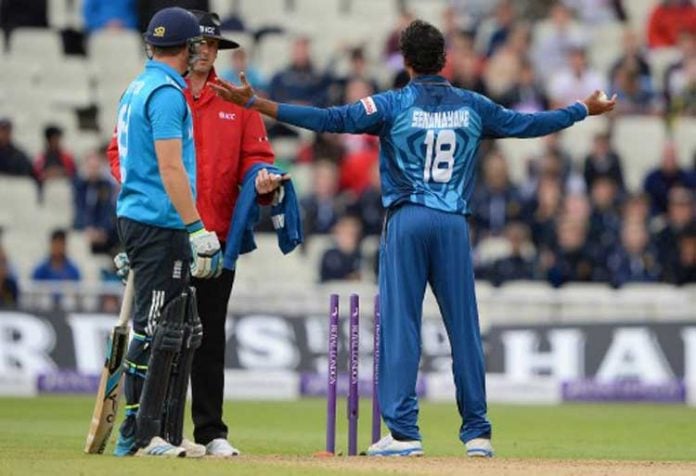Possibly the most contentious mode of dismissal in the game of Cricket, the Mankad is a maneuver that will be easier for bowlers to pull off with Marylebone Cricket Club’s (MCC’s) new guidelines that came into play at the beginning of October.
A host of changes to the MCC’s Laws of Cricket came into effect on the 1st of October including a subtle change to the rules on Mankading (the bowler running the non-striker out before bowling the ball) which has been in place in international cricket since 2011.
Under the previous MCC Laws, bowlers were permitted to attempt to run out the non-striker only before entering their delivery stride. Now, bowlers will be able to run-out the non-striker up to the moment at which they “would be expected to deliver the ball”.
The dismissal was named after India’s Vinoo Mankad who ran out Australia’s Bill Brown in 1947 after the batsman had backed up too far at the non-striker’s end.
The MCC has changed the wording of the Mankad rule from “Bowler attempting to run out non-striker before delivery” to “Non-striker leaving their ground early” putting the responsibility of staying in the crease solely on the non-striker.
The MCC explained the need for the change saying “It is often the bowler who is criticised for attempting such a run out but it is the batsman who is attempting to gain an advantage. The message to the non-striker is very clear – if you do not want to risk being run out, stay within your ground until the bowler has released the ball.”
Despite this change in laws, incidents of ‘mankading’ are still met with some ill feeling.
Three sides to the story
Many of those against this mode of dismissal claim that it is against the spirit of the game while still others take the middle ground, claiming that the non-striker should in the very least be warned if the bowler is going to attempt to run him out. And then there are those who say that acting within the laws of the game cannot possibly be termed as against the spirit of the game.
The debate has been raging for a while and keeps cropping up on and off with the most recent incident happening during the Mercantile ‘A’ Division tournament semi-finals between MAS Unichela and LB Finance when MAS bowler Ishara Amarasinghe ran out non-striker Shiran Fernando with LB Finance needing 1 run off 1 ball to claim a place in the final.
When Sachithra Senanayake ran out Jos Buttler back in 2014, the cricketing world was split in two regarding Captain Angelo Mathews’ decision to back up the bowler’s appeal. Many had no issue with what happened as the Sri Lankans had warned the batsman several times before the actual incident.
On the other hand, England’s skipper at the time Alastair Cook was clearly opposed to the maneuver. He was quoted after the game saying “I was pretty disappointed with it to be honest with you. I hope I wouldn’t do it.” So, Cook’s stance was pretty clear, he wouldn’t do it, even after a warning.
The Australian skipper at the time Michael Clarke had a more neutral viewpoint – “At the end of the day, as long as the player has been warned… It’s obviously in the rules so you can make whatever decision you want.”
But of course this was before the modification of the rules. Have the attitudes changed?
Interviewed on The Grade Cricketer Podcast a month or so ago, Australian fast bowler Pat Cummins was asked whether he’d contemplate ‘Mankading’ Jimmy Anderson to win the Ashes on the last over of the series, with the series tied 2-2. His response, “Easiest question I’ve ever had, I’d do it in a heartbeat, then run around the SCG with a stump like Warney, 700 [wickets] style.”
The debate rages on
Needless to say, ‘mankading’ brings up a seemingly unending debate that has divided players and fans alike. As such, there are many questions that are left to ponder.
Is ‘mankading’ perfectly permissible within the laws in keeping with the spirit of the game?
If the batsman is backing up too far outside his crease is that not one form of cheating, especially when run-outs are decided by millimeters these days?
Why is following a law considered contrary to the spirit of the game?
To think of it in a pressure situation, like the one in the Mercantile semi-final, is it not a skill that should be applauded?

















